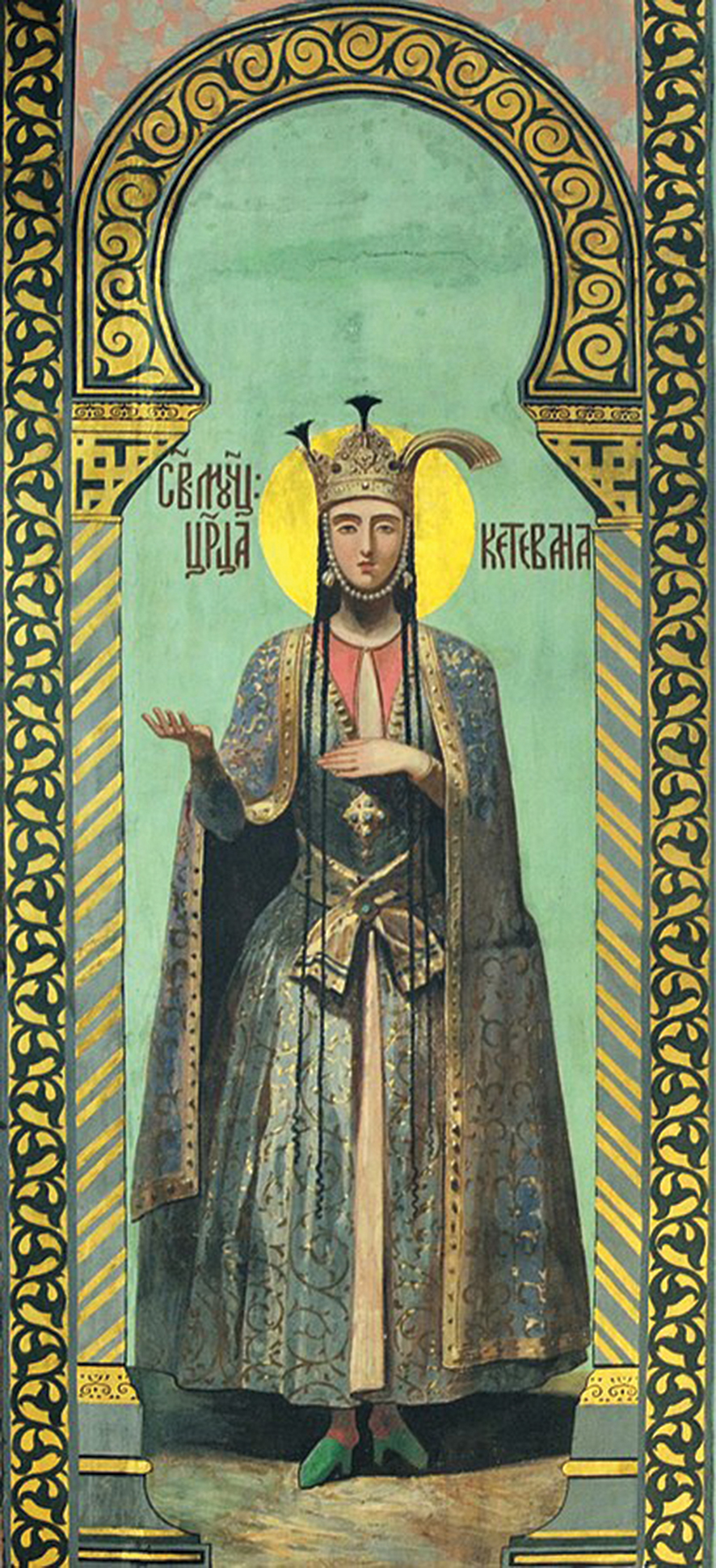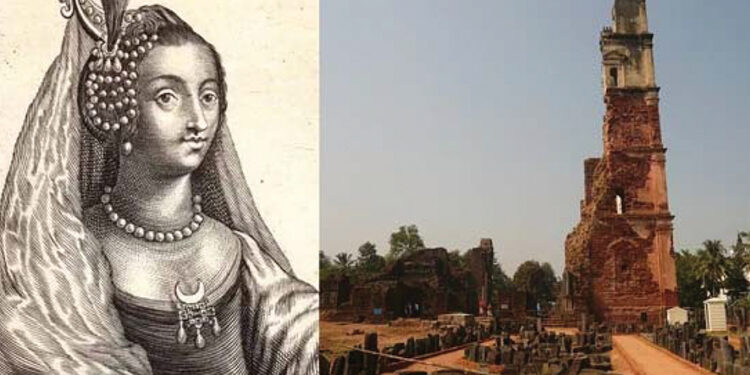Georgian historiography knows her as Queen Ketevan (1560-1624), Ketevan Bagrationi, descendent of the House of Mukhranbatoni of the Kartli Principality of Georgia. She was the spouse of the King of Kakheti, Queen consort of Kakheti, mother of the Kakheti monarch Teimuraz the First, and indeed served as regent of Kakheti herself in the times of the minority of her son, doing so by negotiating with Shah Abbas I of Iran, who was then the highest authority over Sakartvelo, to approve her underage son, Teimuraz I, as King of Kakheti, and for she, as his mother, to assume the obligation of regent.
It was a fateful day in 1614 when King Teimuraz delegated his mother, Georgia’s beloved queen-mother, for the trying capacity of negotiator to Shah Abbas. Ketevan thus yielded herself as a captive to Persian powers so as to keep Kakheti safe from assault by the well-armed and impeccably trained Iranian troops.
The righteous Georgian lady of honor and integrity was detained in Shiraz for a number of years, until Shah Abbas the First, in his fury of retribution for resistance put up by King Teimuraz, ordered the Georgian lady-sovereign to relinquish Christianity. Faced with her vehement and selfless rejection of their determined proposal that she give up the Christian faith and convert to Islam, the enraged Persian monarch had her tortured to death with red-hot pincers.
Queen Ketevan was killed in Shiraz, what is now the fifth most populous city of Iran, in 1624, one of the most chilling years in Georgia’s history. The horrendous historical act was perpetrated by the Safavid political superpowers of Persia, which ruled Kakheti during those fearful-for-Georgia times. Part of her remains were covertly removed from her place of rest by the Saint Augustine Portuguese missioners, who had witnessed Queen Keevan’s mindboggling martyrdom. They brought the holy relics to Georgia, where they were interred at the Alaverdi Monastery.

Official public information has it that the rest of her remains were buried at the Church of St. Augustine in Goa, India. Queen Ketevan was a stateswoman, diplomat and poet, but in the hearts and minds of the Georgian people, she is forever enshrined as Ketevan Tsamebuli – Ketevan the Martyr.
Sakartvelo celebrates her magnificent memory twice a year: in the last week of March, which is her birthday, and the 26th of September, which happens to be the day of her demise. In high appreciation of her undeterred faith in God and love for Christianity, Queen Ketevan was canonized by Patriarch Zachary of Georgia in the 17th century, and September 13 (September 26 per the modern Gregorian calendar) was established by the Georgian Orthodox Church as the day of her commemoration.
2024 marked the 400th anniversary of her death, and 2025 is set to be the 450th anniversary of her birth. The dates are overseen by the Queen Ketevan Society, presided over by Tamar Parchukidze, Georgian historian, researcher, poet and composer, who seeks for 2025 to be named the Year of Queen Ketevan, an endeavor supported by the entire Georgian nation and hopefully also to be supported by UNESCO and, in concert with the United Nations, by the entire world.
Next to Tamar Parchukidze in this great national undertaking adamantly stands Gvanji Mania, the well-known Georgian public figure, journalist, ecologist and travelling researcher of the nation’s past.
Professor Paata Natsvlishvili, an outstanding member of the Queen Ketevan Society, has gone to great lengths in the field of research and popularization of the Georgian Martyr’s glorious life and unbearably painful historical fate. His multipage powerful opus about Queen Ketevan saw light on the pages of ISTORIANI, a KvirisPalitra journal, published on 29 July, 2024. The work deserves not only the national eye, but the attention of international society, the corroboration of this being the supposition that, in the ongoing process of the world’s spiritual deterioration, the cultural and intellectual standing of the self-same world needs to be propped up by the patriotic endeavor, brilliant ideas and meaningful scientific-research of thinkers and public figures like Tamar Parchukidze, Gvanji Mania and Paata Natsvlishvili. These are the people who are sweating for Sakartvelo, moved only by their love and enthusiasm for the country, which nowadays matters more than anything else.
By Nugzar B. Ruhadze














